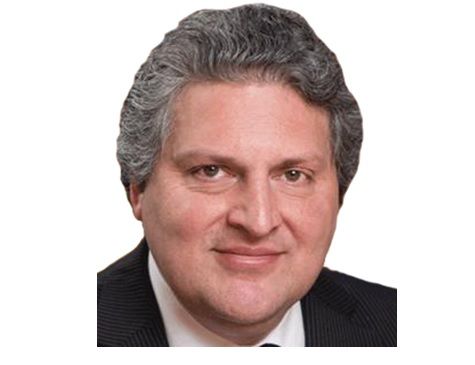RBS CHIEF EXECUTIVE Ross McEwan is certainly wasting no time in getting the bank down to its target size and shape. Selling the international private banking and wealth management business Coutts to Union Bancaire Privée and getting another slug of Citizens Financial away for proceeds of US$3.2bn (US$3.7bn if the greenshoe is exercised) follow the recent sale of its US and Canadian loan book to Mizuho.
Moves to sell the Asian book as part of the bank’s exit from the region are similarly in train. Getting all the elements of the chunky deleveraging and exit plan ticked off one by one in quick succession and moving inexorably closer to the UK domestic operation serving the political needs of whichever government ends up winning the General Election in May is clearly on an accelerated track.
Massively scaling back the investment bank – still, by the way, a top-15 global bond underwriter punching well above its weight – will take longer. But while the commitment is firm, it does have the look of one of those slow deaths by a thousand cuts – or 14,000 cuts in the case of jobs at risk. Revenues will increasingly start to undershoot cost savings as the programme evolves. The financials are not going to be pretty.
The bank expects the sale of Coutts’ international business, with assets under management of US$33bn and total risk-weighted assets of US$2.1bn, will fetch a premium – although the bank said the capital benefit would be modest after writing off goodwill and adding in exit and restructuring costs.
The sale has already resulted, of course, in the departure of the urbane and talented Rory Tapner, who ran the wealth business. Tapner has spent the majority of his long career in investment banking in Europe and Asia and he is unlikely to leave the industry. I suspect he has a range of options under review and will resurface soon.
THEY SAY TIMING is everything. RBS is pushing rapidly ahead with its exit from Citizens just as the outlook for US regional banks is looking up. The selldown in Citizens, at US$23.75 a share, was a good outcome from a deal-making and execution perspective. But RBS’s UK-focused local yokel strategy, born of political imperative, will mean it will miss out on Citizens’ turnround and expansion plans that are likely to blossom as the US economic cycle hits its next phase.
The selldown was increased in size, enabling RBS to cut its stake in the US regional lender to 41.9% from 70% post-greenshoe. It was the first stock sale since the Citizens IPO last September. The chunky sale precedes a plan by Citizens to repurchase an additional US$250m worth of shares in a few days, a repeat exercise in the third quarter, up to US$750m of buybacks in 2016 and a total RBS exit by the end of next year.
That was always guaranteed to set a positive backdrop to the sale and will keep the shares well bid. It also means a potential additional secondary sell-down may be off the table – unless McEwan wants to front-run his own exit agenda and is tempted to take advantage of strong market conditions to deal.
It’s pretty clear that Citizens has plans that go beyond the span of its RBS ownership
BEYOND THE TECHNICALS underpinning the share price, another attraction is Citizens chairman and CEO Bruce van Saun’s plan to push the return on average tangible common equity to 10% by the end of 2016 and to 12%-plus thereafter. US regional lenders are likely to be a good proxy for a recovering US economy and any improvement in the domestic business cycle.
It’s pretty clear that Citizens has plans that go beyond the span of its RBS ownership. The bank is putting together a formidable management team. After exiting JP Morgan this time last year after 31 years’ service, Don McCree resurfaced this week as head of commercial banking and vice-chairman of Citizens. When he left the house of Morgan, he was global head of corporate banking and treasury services. He starts at Citizens in September.
At present, Citizens’ business mix is about 56% consumer and 44% commercial and the bank has been focusing heavily on building out its commercial platform. The strategy over time is to move to a 50–50 split. That will form the basis of McCree’s job on the back of a product suite that covers corporate banking and capital markets, asset finance, private equity financing, commercial real estate, treasury solutions and others. Inevitably, perhaps, cross-sell is out there as a key objective.
Earlier this month, Eric Aboaf was announced as the bank’s incoming chief financial officer, replacing John Fawcett. Aboaf was treasurer of Citigroup and was previously CFO of the North American consumer group and the Institutional Client Group.
Getting such seasoned professionals to come on board is surely a sign that aspirations are on the rise. The two senior hires come in the wake of the Fed giving the bank’s capital plan under CCAR the thumbs up this time around. In the stress tests, Citizens said its projected capital ratios ranked in the top quartile of the 31 largest bank holding companies.
McKewan is hardly master of his bank’s destiny – that lies firmly with the British government. But given half a chance, I wouldn’t be surprised if he secretly wishes he could engage in a bit of business arb and retain a stake in upside in the US.
